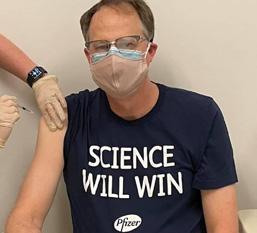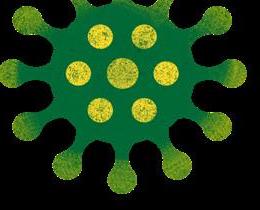
7 minute read
DYAD Survey Update
SUCCESSFUL YEAR ONE: DYAD SURVEY UPDATE
By Kahlin McKeown, Assistant Executive Director of Student Engagement
Advertisement
Through the generous support of donors to the FarmHouse Foundation, the Fraternity has partnered with a national research firm, Dyad Strategies, to collect data and help outline strategic priorities. The Dyad team administered the first Fraternity-wide student survey this fall, gathering information from our entire undergraduate membership. We had a very high response rate of 73 percent, which is especially impressive in the survey’s first year. Four chapters reached one hundred percent (100%) participation from members, and nearly all chapters reached a fifty percent (50% participation rate.
The data from the survey assessment results is incredibly insightful, and will inform priorities for the Fraternity in a number of areas. Not only does our partnership with Dyad provide specific data, but it also allows FarmHouse to compare and contrast across 10 other national fraternities with both chapter-level and overall membership data.
There are a number of positive findings from the survey. First, FarmHouse members are extremely satisfied with their experience. This is especially significant because the survey was administered in September and October 2020, amidst a global pandemic that upended the traditional fraternity and campus experience. Despite these challenges, FarmHouse men are still extremely satisfied with their chapter and fraternity experience. While other fraternities experienced declining satisfaction scores during the pandemic, FarmHouse had the highest satisfaction score of any fraternity collecting data in the fall semester. We will continue to measure satisfaction to see how FarmHouses score evolves outside of challenges related to COVID-19.
FarmHouse men also reported a low level of hazing tolerance, and among the lowest in the entire fraternity dataset. Many FarmHouse men view the new member experience as one to promote learning and commitment to the organization while promoting positive and desirable outcomes for new members. We also had higher than the all-fraternity average on several other commitment measures, including both emotional attachment and sense of obligation to the Fraternity. FarmHouse undergraduates also indicated the organization is a major part of their social identity on campus.
As a part of our partnership with Dyad, they developed individualized scales to measure the saliency of FarmHouse values including academic excellence, personal growth, integrity, selflessness and service. The goal is to track how each of these values shift over a member’s time in the chapter, ideally increasing over time. With only one year of data so far, we have a current snapshot of the values’ importance to the membership, and all values appear to decrease over time. As we continue to collect data, we will be able to compare these measures more accurately over time.
Another area of focus is the sense of belonging within chapters. The assessment measured how the members define brotherhood, grouped into four categories: shared social experiences, accountability, solidarity and sense of belonging. Each of these are somehow present in brotherhood, but there are more desirable ways each of them can be integrated into chapter culture to promote a positive climate. FarmHouse measured a bit low on sense of belonging as a measure of brotherhood, so we will continue to focus on how men can promote true belonging and acceptance within their chapters. Overall, the assessment data collected this fall is highly encouraging in multiple areas and provides focus on future priorities. We look forward to being more data-driven in our approach as we grow to make the FarmHouse experience even better. We appreciate the generous investment by the FarmHouse Foundation, which enables us to continue in this important endeavor.
Dyad Strategies results outline overall satisfaction amongst FarmHouse members compared to other fraternal organizationans.
LIFE SAVER

hat does it take to save hundreds of millions of lives? How
Wfast can this process happen in order to save as many lives as possible? The validity and efficacy rate of the SARS-CoV-2 (COVID-19) vaccine is a testament to the team working with Paul Rohlfing (Nebraska 83) at Pfizer, Inc. Paul is the Executive Director of Chemistry, Manufacturing and Controls (CMC) and Regulatory Affairs (RA) for Vaccines with Pfizer, Inc.
Paul’s team develops and maintains the documentation of how Pfizer, Inc. work to develop, manufacture and test their vaccines before releasing.
“I lead a group of 50 colleagues globally in six countries — U.S., the United Kingdom, Spain, Belgium and Ireland,” said Paul. “We update them (the documentation) any time we want to make a change to the vaccine or the process we use to make the vaccine.”
He has worked for Pfizer, Inc., for more than 30 years, and the development and roll out of the COVID-19 vaccine was something new, but they were equipped to handle. The disease itself may be new, but the process to make the vaccine is not.
The COVID-19 messenger RNA (mRNA) vaccine contains mRNA, which is like a blueprint for the spike protein of the SARS-CoV-2 virus. The vaccinated person’s dendritic cells use the blueprint to make the spike protein from the surface of the virus. Once the immune system realizes this protein is “foreign,” it creates an immune response against it. So the next time the person is exposed to the virus, the immune system is ready to respond rapidly.
Prior to distribution, vaccinations go through dozens
of clinical trials, protocols and standards that traditionally FarmHouse,” said Paul. “Certainly we have had to expand our take weeks, if not months, to develop. Thankfully, based on Pfizer, Inc. team, so the college experience as chair was helpful processes already in place, the Pfizer, Inc. team were able in recruiting we have done to expand our team. A key part is it to shorten the production timeline to produce a vaccine might seem all the pressure is on the initial authorization to get, for mass distribution in less than a year. but there has been even more pressure to ramp
“The COVID-19 vaccine has required we up supply. To be able to vaccinate the world.” develop a plan very quickly, but also have His time as recruitment chair was not his flexibility in the plant to be able to quickly respond “I don’t really only experience at Nebraska that has stuck to new developments and adapt to changes in the with him. “Certainly the focus of FarmHouse plan,” said Paul. “We have learned to set aside consider myself on excellence and working collaboratively time every day to meet with the scientists and with others has been really key to my career engineers who are developing the process and a hero per se, overall,” said Paul. “Especially in my career who are installing those processes in our in regulatory affairs. Attention to detail manufacturing plants. That way we can accurately but I am very and being able to describe to others how a describe those details in our regulatory filings.” process works is a key part of our role.”
Under the terms of their agreement, Pfizer, proud of it.” Although he has saved millions of lives Inc., will deliver at least 70 million doses by through his work, he does not consider himself a June 30, 2021. This high volume requirement hero. “I am very proud of what I have contributed caused a few additional challenges for Paul and his team. to the effort and proud of what my team has accomplished,
“I was able to serve as recruitment chair at Nebraska but actually the development of this COVID-19 vaccine has been just one of the things we are working on,” Paul said. “We’ve kept five other major pharmaceutical programs under development and moving forward at the same time. I don’t really consider myself a hero per se, but I am very proud of it.” The FarmHouse Object is something that Paul refers to periodically. The line, “to give promise of service to their fellow men and to the world. To be and become such may at times require a sacrifice of time, pleasure and comforts,” has been instrumental in his work. “Certainly this has been an accurate depiction of what I have tried to do to make it a little bit better world, a better place for the health of the world,” said Paul. “It has required a few sacrifices, but it’s also really rewarding seeing your friends and family members get their vaccinations.” FarmHouse also runs through Paul’s veins — his family. Paul’s father Norman (Nebraska 57) and Paul’s son, Pierce (Clemson 19) are FarmHouse members. Additionally, Tom Thurber (Nebraska 60), his father-in-law and Eric Thurber (Nebraska 89) and Lee Thurber (Nebraska 91), his brother-in-laws, are all also FarmHouse members and long-time volunteers.
LEFT: Paul Rohfling (Nebraska 83) sits at his computer where he has spent the pandemic working. RIGHT: Paul receives his first dose of the Pfizer vaccine.








